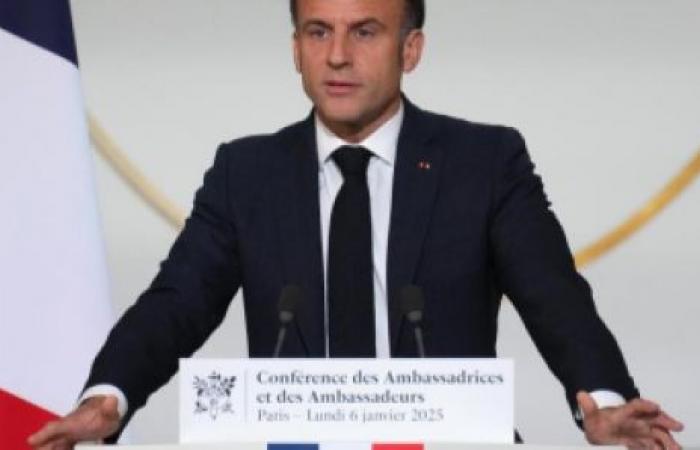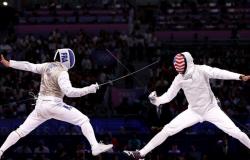During the conference of French ambassadors, held on January 6, 2024, President Emmanuel Macron engaged in an exercise that is now familiar to him: that of a sophist capable of passing off a strategic retreat as a controlled advance. In a speech marked by self-satisfaction, he assured that France was not in decline in Africa but in full “reorganization”. Yet, beneath this veneer of feigned confidence, emerges the portrait of a president without vision, more concerned with spin than by the deep introspection that the role of a statesman requires.
Presenting the departure of French troops from Africa as a sovereign decision by French power is an illusion. In reality, France did not choose to leave: it was pushed towards the exit by people tired of a partner perceived as arrogant and disconnected. The calls for the withdrawal of military bases, demanded by the African peoples concerned, reflect a rejection of decades of paternalism disguised as cooperation. Faced with this stark truth, Macron prefers to lock himself in a rhetoric of reproach, complaining about African “ingratefulness”. “I think we forgot to say thank you,” he said with an irony that betrays a deep incomprehension of historical and political dynamics.
Thanks for what? For military interventions often perceived as interference?
For unbalanced partnerships that have kept the continent in chronic dependence?
By claiming that African states owe their sovereignty to the French army, Macron insults the history of people who, for decades, have fought for true independence. This posture reveals a debilitating sin: a total absence of strategic vision for France. A truly lucid statesman would have understood that the world is changing, that Africa is transforming and that it is urgent to redefine the bases of a respectful and equitable partnership. Instead, President Macron persists in believing that rhetorical effects will be enough to mask the erosion of French influence. His conception of diplomacy is based more on shock phrases and theatrical postures than on a deep reflection on the role of France in a multipolar world. France’s decline goes far beyond the borders of Africa.
Under the presidency of Emmanuel Macron, France has gradually isolated itself on the international scene, unable to strengthen its alliances and establish itself as a credible power in the face of contemporary global challenges. A striking example was the snub inflicted on France in September 2021, when Australia canceled a €56 billion contract signed in 2016 for conventional submarines, turning instead to a strategic alliance (AUKUS) with the United States and the United Kingdom for nuclear-powered submarines. Furthermore, the absence of a clear guideline from France on the situation in Palestine, in particular the tragedy unfolding in Gaza, obeys the same syndrome of loss of bearings but also of abandonment of the principles of truth and justice.
Great statesmen are distinguished by their ability to anticipate, to reinvent, to build bridges where others see obstacles. President Macron prefers to consolidate his image, confusing lucidity with a justification of the status quo. In Africa, this lack of vision is even more glaring. Where France could have positioned itself as a partner of choice to support the emergence of new African powers, it has become a stagnant weight, a cumbersome presence. While the other partners focus on economic and strategic relations, Macron remains mired in neocolonial rhetoric which only solidifies the rejection of France.
The partnership praised by the French president is matched only by his inability to listen to and respect the aspirations of the African people. France is not “reorganizing” itself in Africa. She is going backwards, and this regression is the direct result of the lack of vision of a president who confuses arrogance and leadership. Great statesmen know how to recognize their mistakes, understand changes in the world and adapt with humility and intelligence. Macron, for his part, takes refuge in a disconcerting self-satisfaction, hoping that the play of light and shadow will be enough to mask the cracks in a foreign policy in ruins. However, recovery is not irrevocably compromised, because France still has assets that it can exploit to establish healthy relations with Africa. But this will only be possible if it demonstrates true lucidity, not of the kind described by Emmanuel Macron, but of that which is based on common sense and an enlightened understanding of contemporary realities.
Sheikh Niang
Retired Ambassador of Senegal






